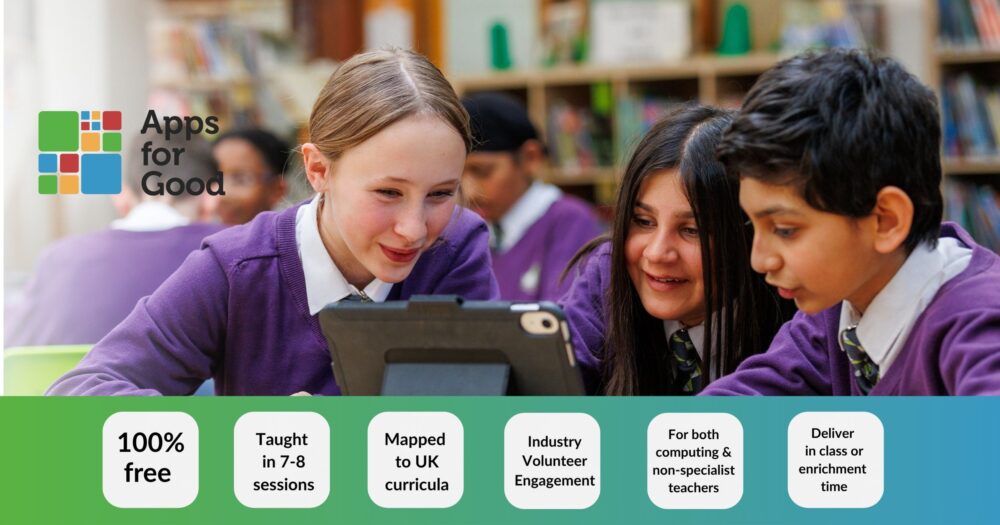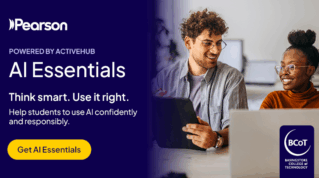Student Disengagement Starts Early
Student disengagement is a big problem – and it’s hitting our most disadvantaged learners the hardest. According to the Pearson School Report 2025, 69% of secondary educators expect disengagement to be a major barrier to learning in the next six months. Worryingly, this isn’t a new trend. Year after year, schools with higher numbers of students eligible for free school meals report the steepest drops in motivation and participation.
The transition to secondary school is often a tipping point. In Mind the Engagement Gap: A National Study of Pupil Engagement in England’s Schools, Professor John Jerrim found that “more than one in four pupils begin to disengage from school during Year 7 […] with engagement particularly low among girls and disadvantaged pupils.”
Creating Equal Pathways to Opportunity
These early cracks in engagement can grow into lasting disengagement and inequality. With the upcoming Curriculum Review and the Shadow Curriculum Review, there is a clear call for change. The youth-led reform paper warns of “enjoyment, trust, agency, and sense of safety in sharp decline” amongst students – and calls for a national “enrichment guarantee” of at least 80 hours a year to ensure fair access to meaningful learning.
As the Centre for Young Lives notes in Beyond the Classroom, “the links between enrichment and attendance are likely to be compounded for children and young people in poverty.” Those who are most in need of inspiration and opportunity are often the least likely to access it.
The challenge is clear: we must find new ways to re-engage students – especially those already at risk of falling behind.
“Our education system cannot continue to play catch-up with advancements in technology and the workplace – we must put the foundations in place to equip every young person with the skills they’ll need to thrive.” Janeen Hayat, Director at The Fair Education Alliance (Pearson School Report 2025)
For 15 years, Apps for Good has been championing digital education, empowering young people from all backgrounds – especially girls and those from underrepresented backgrounds – to thrive. Our free, introductory computing courses put young people in the driving seat, encouraging them to draw on their lived experiences to tackle real-world challenges that matter to them.
“Students’ cultural and lived experiences should be recognised as valuable and important forms of knowledge, and should be proactively brought into the classroom.” Shadow Curriculum Review
Students don’t just learn coding and digital literacy – independent learning is central. The ability to learn independently about something they care about helps them grow into effective problem solvers and confident decision makers — crucial skills for thriving in any future career, especially in the digital economy.
“As a teacher, I’ve thoroughly enjoyed delivering this programme because it hasn’t been teacher-led. It’s been about empowering our young people through this idea of a problem and finding a solution […] and enabling them to really develop as young people.” Somaira Younis, Teacher at Shireland Collegiate Academy
Engaging Learners Again
To engage a diverse range of learners, courses are specifically designed for KS3/S1–3 students to excite them at a pivotal stage in their school journey. Students create app prototypes in teams to address social issues that are important to them. Real-world relevance fuels motivation and ensures they’re not just learning digital and essential skills —they’re applying them in meaningful ways that reflect their values and experiences.
Students develop skills like communication, teamwork – and, importantly, confidence. Computing doesn’t flourish through passive learning. That’s why we promote dynamic, hands-on classrooms that reflect the energy of the real world and support students in becoming active, engaged citizens. Virtual industry engagement opportunities are integrated into the course, bringing that real-world experience directly into the classroom.
Adaptable for Every School
Courses are accessible for both computing teachers and non-specialist teachers. With a flexible delivery model – whether taught in curriculum or enrichment time – they help save time, reduce reliance on specialist staff, and deliver high-quality computing that prepares students for the future.
Schools can choose from three themes – Social Action, Climate Action, and AI for Good. Thanks to their flexibility, many schools deliver the courses during enrichment time, whilst others integrate the course into existing schemes of learning, making them a core, cross-curricular element. As LiFE Multi-Academy Trust puts it:“We don’t see it as an add-on, [it’s a] central piece that can enrich multiple areas of the curriculum. For us, the course forms the core of a cross-curricular project.”
Building Confidence, Skills, and Positive Futures
In 2023/24, our courses reached 701 schools, 30,143 young people, and 841 teachers. 70% of student survey respondents agreed that they learn independently in computing lessons after doing the course and 71% said they felt more determined to learn in computing lessons following the course. Looking ahead, 35% were inspired to study computing or a related subject, and 34% to pursue a career in digital technology.
“When I started, I had no real interest in Computer Science, but [now] I’ve actually changed one of my GCSE options to Computer Science, which really shows how much this has influenced me.” Ellie, Student at Cedar’s Upper School
“Students who might once have felt disconnected from computing – those who didn’t think of themselves as “techy” – are now fully engaged. They’re developing digital confidence, critical thinking, and communication skills, all while working on projects that matter to them.” Steve Hall, Deputy Director of School Improvement at LiFE Multi-Academy Trust
We’re proud to see year-on-year evidence that our work is boosting confidence, skills and interest in computing – particularly amongst underrepresented groups like girls. Women make up just 20% of the UK tech workforce – this is a narrative we’re actively seeking to change.
“It is often said that Apps for Good is a good first step to get women into technology. This year, we’ve seen an encouraging increase in the number of girls choosing computing subjects.” Kamona Karim, Teacher of Computing at Putteridge High School
Get in Touch
We work closely with schools across the UK to deliver free computing courses and we’d love to explore how our resources can support your students.
Book a 30-minute call with our former teacher and Education Community Manager, Kathy, here.
Learn more about Apps for Good here.















Your thoughts